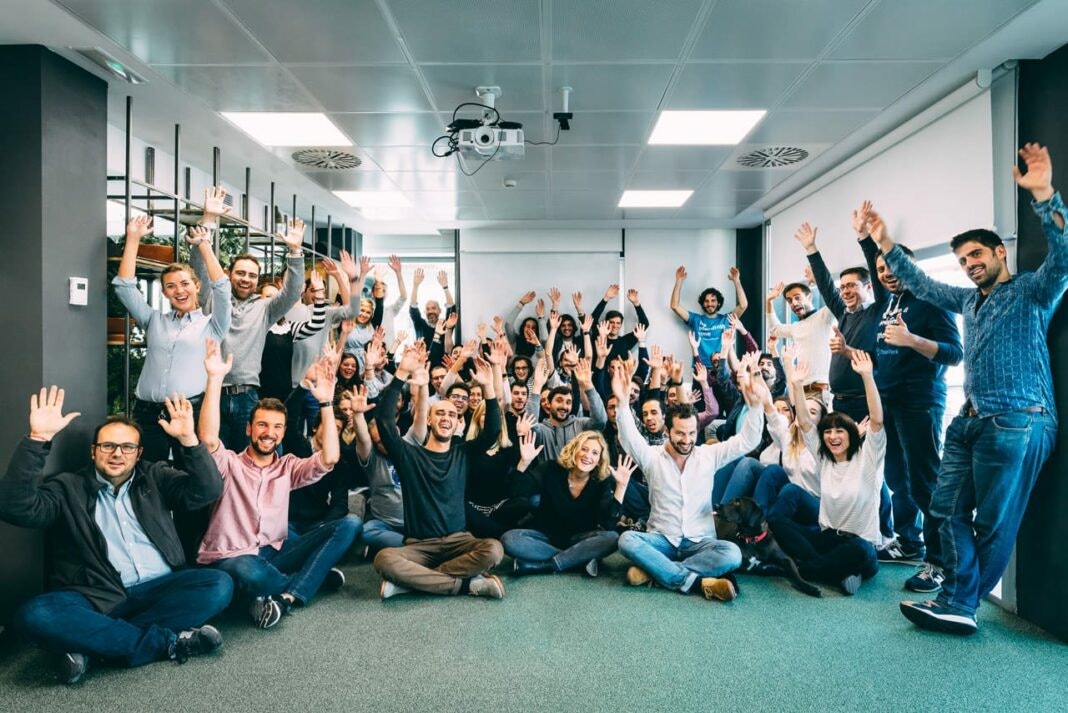The coronavirus has been tough on the global travel industry. International flights have been grounded, more than a dozen airlines around the world have gone bankrupt, and industry bodies are predicting more than 200m job losses across all travel sectors.
Among startups, tech companies such as GetYourGuide, Omio, Homelike, FlixBus, Dreamlines, Tourlane and Trivago have been on the sharp end of the downturn, which is set to wipe $5.5tn from global GDP.
Experts say the travel industry will take months, even years, to recover on many fronts, and the economic outlook will remain dismal for a while.
But amidst all the doom and gloom, amid a slight easing of restrictions, some travel startups have begun to get back on their feet — and a few have even benefited from changes in consumer behaviour prompted by the pandemic.
Crisis brings opportunity
Holidu, a Munich-based startup that compares the prices of vacation rentals across sites like Airbnb and Booking.com, has always focused on leisure travel in locations off the beaten track. As such, the company was well positioned to weather the months of lockdown.
“[Renting a home] in a remote location has been a trend for many years, and the coronavirus has accelerated this trend. It’s also opened this part of the market up to new customer groups that may never have considered a vacation like this before,” says Holidu’s cofounder and CEO Johannes Siebers.
While the company’s bookings dropped by 98% in early March in the worst parts of lockdown, they rebounded to pre-coronavirus levels in May. Now, they’ve skyrocketed.
In July alone, more than 27m users visited the Holidu platform, according to the company’s data. This resulted in a 2.6x growth in year-on-year bookings, and more than €130m in newly generated bookings that month.
“We think this is because people were desperate to travel after lockdown, but with a safe alternative — which, for many customers, means being able to drive to a location and stay in a house remote from the masses,” says Siebers.
“We also have the advantage of being a growth company which has always had a data-driven and agile approach, so we were able to react quickly to the crisis,” he adds.
Holidu’s position in the travel market has been further strengthened by a recent cash injection.
The Munich-based company announced today that former Booking.com CEO and founding partner of EQT Ventures Kees Koolen — who has been a board member for Holidu for the last five years — has invested €4m from his personal fund into the startup, as part of an extension of the €40m Series C round of the previous year.
So, why was now a good time to invest?
“People are always going to want to travel and enjoy weekend breaks,” Koolen told Sifted. “The current crisis offered Holidu an opportunity to accelerate growth, and for that they need cash.”
Standing out in the market will require stepping up the customer experience, he adds: “This is what separates the winners [from the losers] in travel verticals.”
Pivot to survive
Another company to have benefited from the travel industry’s remarkable shift in recent months — with consumers swapping their dreams of transatlantic travel for a weekend getaway closer to home — is Plum Guide.
In March, the UK-based startup pivoted from offering vacation rentals in cities to rural holiday homes — and, so far it’s been a success.
“Our bookings have increased massively, but they haven’t yet returned to pre-Covid levels. However, you’d be hard pressed to find a company that this has happened to. Even Airbnb is struggling, despite filing for an IPO,” Joe Adams, Plum Guide’s CFO, told Sifted.
It has, indeed, been a turbulent year for Airbnb. In April, at the peak of lockdown in Europe, Airbnb’s bookings fell by 95%. The same month, CEO Brian Chesky told Reuters that the company was expecting its revenue to fall by 54%, and in May, it laid off 25% of its staff.
AirBnb reported in June that the company had seen an unprecedented “bounce” in European travel bookings, but hasn’t yet disclosed any data to account for this.
Plum Guide has also had its share of misfortune. At the start of the year, the company was on track for a Series C raise this summer — but the coronavirus scuppered these plans.
When Sifted spoke to Adams in May, the company was in the throes of reworking its pitch deck, and appealing to its existing investors for financial aid.
“They’ve been incredibly supportive,” says Adams. “We don’t intend to reveal our fundraise yet, but I can say that the future of the company is in safe hands.”
As a finance officer that likes to err on the side of caution, Adams is reluctant to suggest that the company is out of the danger zone. But, looking at the numbers now, he thinks that Plum is on an upward trajectory, driven in part by staycations.
With many people in the UK and the US (Plum’s biggest markets) deprived of a summer holiday this year, the company has seen a large hike in bookings for this December, as well as for vacation rentals in summer 2021.
With consumer preferences tilted toward staycations for the meantime, Plum is working on adding more domestic locations in its smaller markets of France, Italy and Spain.
A ‘reshuffle’ for the travel sector
Every major crisis brings radical changes to consumer behaviour, and rejigs who is winning and losing in the market, says Koolen. But this shouldn’t be a surprise.
“This happened to the industry [after crises in the past], and it will happen again in the future. For example, physical travel agencies have diminished in the last 20 years and city tours have boomed because the internet and low-cost airlines showed up.”
Business travel also grew “exponentially” in the last two decades, but months of lockdown have proven to many companies that Zoom calls are often just as efficient, and less costly than in-person meetings.
This doesn’t, however, mean that business travel startups will dry up altogether.
Barcelona-based TravelPerk — the benefactor of a sizable series C round in July 2019 — has been doing reasonably well during the coronavirus. In March, the company turned its attention to refining its product and ramping up its customer service, and has since seen strong growth in new users.
Koolen has a number of predictions for the future of the travel industry: he says that airlines, city trips and large events will suffer for a “long time to come”, but these sectors will come springing back in a few years' time — and may even be changed for the better.
As for holidays and weekend breaks, people will continue to travel by car in smaller groups, to domestic locations they may have never visited before. This will have a positive impact on businesses related to tourism — such as souvenir shops, outlets selling sport equipment and outdoor-wear, bars and restaurants, as well as products such as tracking apps, testing and hygiene equipment.
“After we have access to a Covid vaccine, we can expect a lot of travel to recover,” he adds.
Trouble ahead for hoteliers
While some travel companies have fared reasonably well during the crisis, others are struggling.
Hotels, for example, are facing a rocky road ahead, says Michael De Jongh, chief operating officer of Avvio.com, which develops AI-driven booking platforms for hotels. This is especially true for hotels in London, where the city centre remains deserted.
“Until the full return of international travel — which I think is still a year away — hotel occupancy rates will remain critically low,” says De Jongh.
He adds that hotels across Europe are facing a difficult conundrum: either they lower their rates to incentivise customers, or they maintain their usual rates at risk of putting people off.
Many companies resorted to the former option during the economic crash of 2008. After that, rates per room took years to recover. “The point is that if demand is not there, then lower pricing isn’t the right incentive,” De Jongh explains.
What will incentivise customers in the long run, however, is a stellar customer experience.
“People are looking for holidays that meet their needs experientially, financially, and now, critically, in terms of safety,” says De Jongh. “Startups should be doing everything they can to juggle all these things, while making sure to personalise each guest experience.”
With the colder months approaching, cases rising in Spain, and threats of the UK entering a second lockdown, neither consumers nor companies can plan ahead.
“The travel market will be volatile for a while,” says Siebers. “On the other hand, our data shows us that as soon as people can travel, they will — which should send a positive message to other startups in the industry too.”



